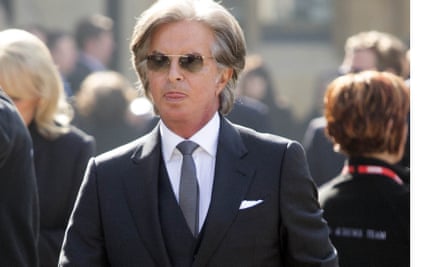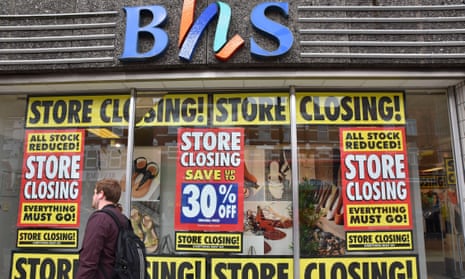The former BHS shareholder Richard Caring has said he was owed more than £850,000 when the retailer collapsed, as he told MPs looking into the matter that he was unable to attend parliament this week.
Caring, the multi-millionaire owner of London restaurants including The Ivy and Le Caprice and clubs including Annabel’s and Harry’s Bar, had been invited to give evidence to a parliamentary inquiry into the demise of BHS on Wednesday.
Caring wrote to the business, innovation and skills committee saying he thought its inquiry into the demise of BHS, in which he was a 22% shareholder until 2006, taking £93m in dividends, was “clearly important”.
However, he said he was not on the board of the company, had no involvement in corporate governance or dividend policy and had no dealings with the pension scheme, which was left £571m in deficit when the company collapsed into administration in April, putting 11,000 jobs at risk.

Caring was due to appear in parliament alongside Brett Palos, the stepson of the former BHS owner Sir Philip Green, who bought a store from the business just before it went bust. Also due to appear are bankers from Goldman Sachs, who advised Green on the sale of the retailer last year to serial bankrupt Dominic Chappell for £1.
MPs have responded to Caring’s letter by asking a whole string of new questions about his relationship with Green, including the purchase of BHS in 2000, the role of Green’s wife in the running of the business and why he ceased to be a shareholder. They also want to know how much he was paid for his shares in the company when he sold out in 2006. They have asked him to respond by 1 July and warned that they will consider further calls for oral evidence on that date.
Caring said he had “never been in the company” of Chappell, never spoken to him and was not involved in the sale of the business last year.
He said he had no real involvement in BHS beyond helping to develop and improve its womenswear ranges in the early 2000s. Work during that time had been been “extremely demanding: very often it was 14 hours a day, seven days a week”, Caring told MPs. He said he had pulled back from involvement with the company because he was “exhausted and I had other business concerns that I needed to attend to and had neglected”.
“Businesses which I owned were suppliers to BHS both during the time of my shareholding and also subsequent to that and up until the time of the business’s sad and unfortunate collapse,” Caring wrote to MPs. “Indeed, my businesses were left with collective bad debts in excess of £850,000 when BHS went into administration.”
Caring said he estimated that his companies never supplied more than 6% of BHS’s retail goods, making average margins similar to those in dealings with other retailers.
There have been some suggestions that Caring supplied goods at a low margin to boost BHS’s profits while he was a shareholder, helping to finance the company’s big dividends.
